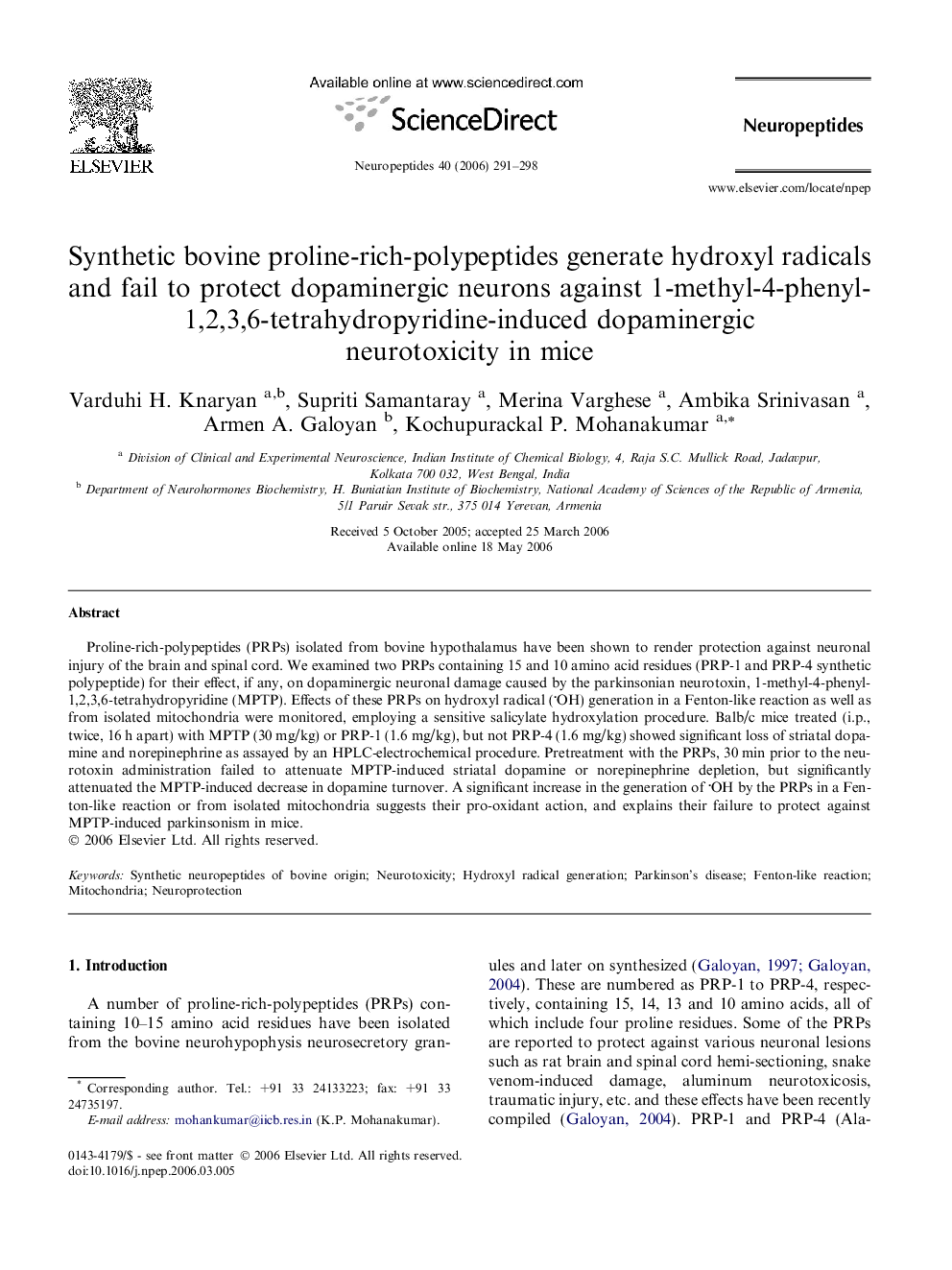| Article ID | Journal | Published Year | Pages | File Type |
|---|---|---|---|---|
| 2808714 | Neuropeptides | 2006 | 8 Pages |
Proline-rich-polypeptides (PRPs) isolated from bovine hypothalamus have been shown to render protection against neuronal injury of the brain and spinal cord. We examined two PRPs containing 15 and 10 amino acid residues (PRP-1 and PRP-4 synthetic polypeptide) for their effect, if any, on dopaminergic neuronal damage caused by the parkinsonian neurotoxin, 1-methyl-4-phenyl-1,2,3,6-tetrahydropyridine (MPTP). Effects of these PRPs on hydroxyl radical (OH) generation in a Fenton-like reaction as well as from isolated mitochondria were monitored, employing a sensitive salicylate hydroxylation procedure. Balb/c mice treated (i.p., twice, 16 h apart) with MPTP (30 mg/kg) or PRP-1 (1.6 mg/kg), but not PRP-4 (1.6 mg/kg) showed significant loss of striatal dopamine and norepinephrine as assayed by an HPLC-electrochemical procedure. Pretreatment with the PRPs, 30 min prior to the neurotoxin administration failed to attenuate MPTP-induced striatal dopamine or norepinephrine depletion, but significantly attenuated the MPTP-induced decrease in dopamine turnover. A significant increase in the generation of OH by the PRPs in a Fenton-like reaction or from isolated mitochondria suggests their pro-oxidant action, and explains their failure to protect against MPTP-induced parkinsonism in mice.
